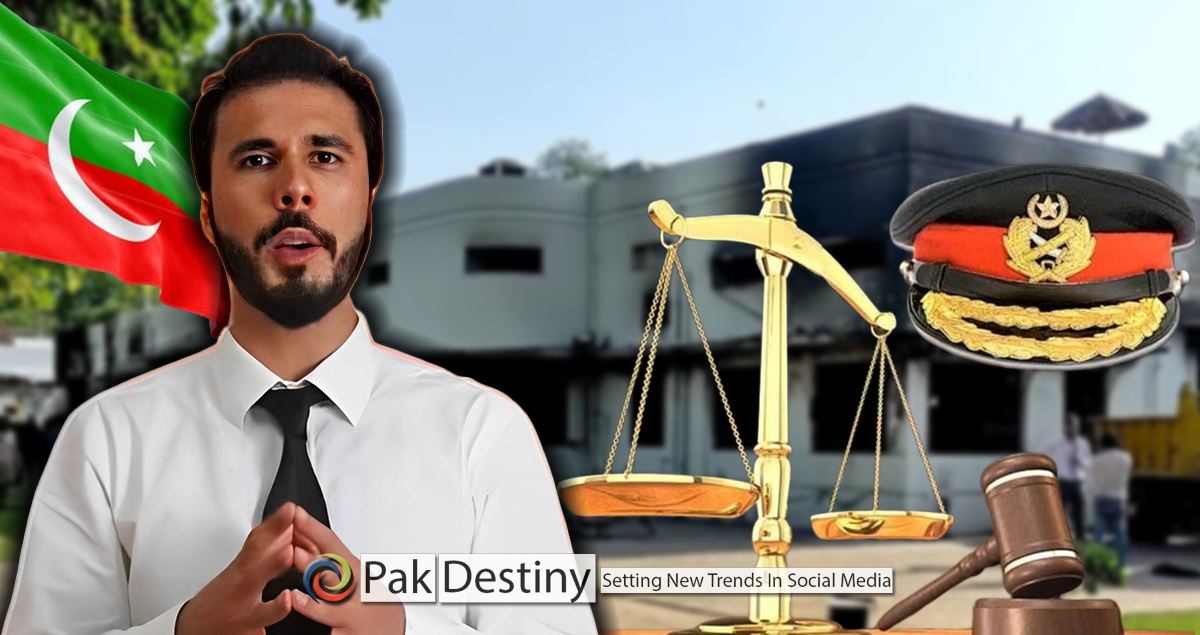
By Zain Khan Watozai
Pakistan’s political and judicial landscape continues to heat up as 60 more individuals involved in the May 9 riots were handed prison terms by military courts, ranging from two to ten years. This marks the second phase of sentencing under military court trials. In the first phase, 25 workers and supporters of the Pakistan Tehreek-e-Insaf (PTI) were convicted and sentenced, and with this recent development, the total number of PTI-affiliated individuals penalized by military courts has now risen to 85. Among those convicted in this second phase is Hassan Niazi, nephew of former Prime Minister Imran Khan and son of prominent journalist Hafizullah Niazi.
Hafizullah Niazi, a known confidant of the military establishment and regarded as one of its “blue-eyed” journalists, finds himself in an unusual position. Despite his influential ties and frequent columns on Pakistan’s political climate, he has refrained from making any public statements about his son’s conviction. The silence is striking, given his otherwise outspoken demeanor regarding the country’s current state of affairs.
This continued use of military courts to try civilians remains controversial. The government’s zero-tolerance stance on the May 9 riots, where military installations were attacked following Khan’s arrest, has seen a widening crackdown on PTI members. Punjab’s Information Minister emphasized that politicians “should not stand against the state” and reiterated that the government would “not allow any kind of terrorism against the state.”
However, the fallout of this campaign suggests a grim trajectory for Pakistan’s political future. The military courts’ sentencing, alongside the government’s hardline position, highlights the growing distance between the state and PTI, indicating no scope for a political settlement. Observers fear that Pakistan is heading towards a point of no return, locked in an unending cycle of political discord and polarization.
Adding to the complexity, international criticism has intensified. The United States, under its new administration, has called for fair treatment of civilians and questioned the military courts’ role in punishing political dissidents. Speculation also links Trump’s past rapport with Khan to America’s continued diplomatic pressure for Khan’s release. Targeting individuals like Hassan Niazi, with deep personal and familial connections to both politics and the military establishment, reflects the unparalleled scope of the crackdown.
As the dust from May 9 refuses to settle, the government’s choices continue to raise difficult questions. Will this approach bring the stability Pakistan so desperately needs, or will the punishment of 85 PTI workers through military courts further polarize the nation, taking it closer to irreversible political fragmentation?
